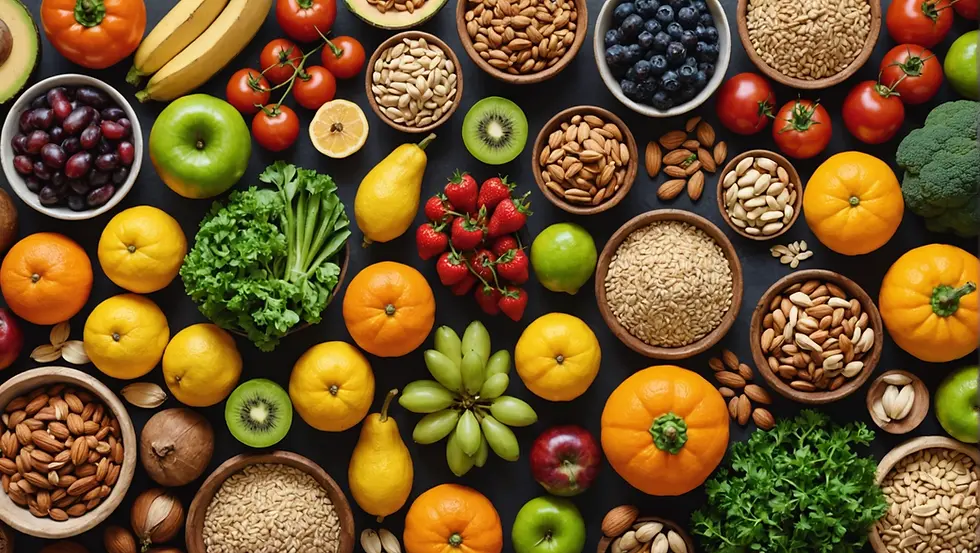SLEEP !!! A naturopathic approach !
- Kerry Caudwell: Natures Connection

- Jan 12, 2024
- 3 min read

Such an important bodily function, yet so many are plagued with sleeping issues. Some people have trouble falling asleep, others can’t stay asleep and then there are those people who have trouble turning life “off”.
Even though more than half of Australians are having some sort of sleep problem, sleep is still poorly understood. It’s natural to have cycles of good sleep and bad sleep, depending on life changes, for example, a new baby, hormonal fluctuations, dealing with pain, stressful events, different stages in your life cycle, will need different amounts of sleep. What is NOT natural is to have insomnia or chronic sleeping issues unless there is a reason. As always there has to be a ‘root cause and this most often than not, can be rectified and treated naturally.
From a naturopathic approach there are many things that need to be considered. What are you doing before bed? do you have a routine? are you having stimulants? age? medication? disease and illness? new addition to the family?. As a qualified practitioner I am here to let you know eating habits are a big one!! Too much sugar, highly processed, chemical enhanced foods before bed can keep you tossing and turning all night. I always tell my clients to follow a low GI diet before sleep, to optimise a healthy balance to hormones, insulin and blood sugar. Following a whole food, PlantBased diet is a good option.
Diet, exercise, and sleep are three pillars of a healthy life. While improving just one of these lifestyle factors can help people lead longer lives, improving all three may be more beneficial for both physical and mental health.
Most people know that diet and exercise are important ways to improve their health, sleep is often overlooked. Sleep hygiene which involves habits that promote quality sleep, can be a great starting point for improving your health and well-being. Do not eat too late, give yourself time to digest your food. Avoid caffeine and other stimulants like coffee and energy drinks. Move your body, aim to get regular, moderate exercise a few times a week and avoid working out to close to bedtime, as this can stimulate you. Getting natural sunshine and exposing your eyes to natural light will turn off melatonin and keep your body in sync with its natural circadian sleep rhythms.
Some foods and herbs that have a significant effect on sleep, melatonin and tryptophan are as follows;
Cherry juice, as its rich in melatonin (the sleep hormone)
Bananas, are a rich source of potassium and , B6, needed to make melatonin.
Chickpeas and hummus, good source of tryptophan (a seep enhancing amino acid) .
Walnuts, a good source of tryptophan.
Almonds, rich in magnesium, a mineral needed for quality sleep.
Dates, are high in tryptophan.
Miso Soup, amino acids that support the sleep hormones.
Oats, have natural relaxants in them, just to name a few foods.
The sleep aid industry has a powerful grip on the world, but even the most effective prescription drugs have their downsides: side-effects, limited access and prohibitive costs. That’s why many people turn to our herbal allies for help, there are many herbs that are either hypnotic (induce sleep) or nervines (relax the body). Herbs such as Chamomile, Passionflower, Valerian, Lavender, Hops, Withania, Lemon Balm, and Kava, just to name a few. Sipping on a nice warm cuppa of sleepy tea, may induce a good night rest.
Why is sleep SO important you may ask? This is when our physical, mental and emotional body can heal, recuperate and restore … This is when we can escape the demands and full on lives we live, we can unplug from the cyber world and slip into the world of dreams and our sub conscious layers.
Like all things, there are many reasons why someone isn’t sleeping well and rather than just googling or self medicating, its always best to check in with your health professional. Us humans are complicated and multi layered, something which works for one, may not work for another, if you are struggling with sleep, book your appointment.
Kerry Caudwell
Founder of Natures Connection






Comments